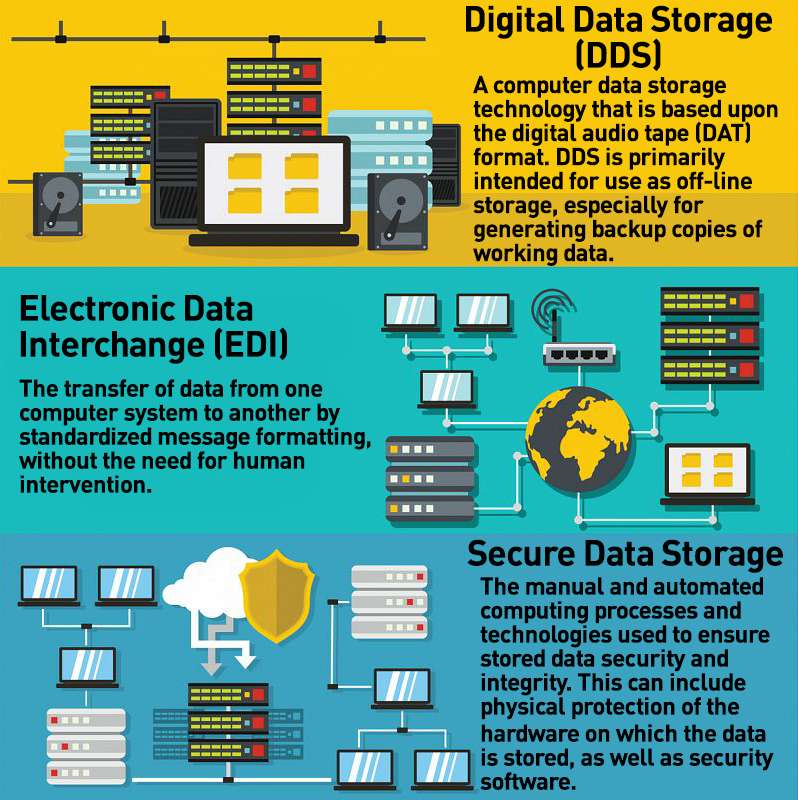The Value of Effective Data Destruction Practices in Safeguarding Sensitive Details and Ensuring Computer Security
In an era where data violations are increasingly common, the importance of reliable data damage methods can not be overemphasized. Carrying out durable information devastation techniques not just mitigates these dangers however likewise aligns with legal conformity requirements, guaranteeing that organizations copyright their reputation and foster customer trust fund.
Recognizing Data Destruction
Recognizing data devastation is crucial in today's electronic landscape, where sensitive information can quickly be endangered. Efficient information damage involves not merely removing data however ensuring that data is irretrievable with extensive approaches. This process is essential for companies that handle confidential client details, copyright, or internal documents, as any breach can bring about severe financial and reputational repercussions.
Information devastation includes various methods, consisting of shredding physical media, degaussing magnetic storage space gadgets, and using software-based services that overwrite data numerous times. Each technique serves a specific objective and should straighten with the level of sensitivity of the information being disposed of. Physical damage is frequently preferred for difficult drives consisting of very private information, while software application approaches might be enough for much less delicate information.
Moreover, adhering to market criteria and regulations, such as the General Information Defense Policy (GDPR) or the Medical Insurance Mobility and Responsibility Act (HIPAA), is necessary for compliance and to alleviate legal dangers. Organizations should establish a robust data devastation policy, train employees on best techniques, and consistently audit their procedures to ensure that all delicate information is disposed of firmly and properly.
Risks of Inadequate Practices
Inadequate information destruction methods reveal organizations to substantial risks that can have significant effects. When sensitive info is not correctly disposed of, it remains prone to unapproved gain access to, which can lead to information breaches and identity burglary. Such cases not only compromise the security of individuals yet additionally taint the company's online reputation, leading to a loss of client trust fund and prospective economic repercussions.
In addition, governing compliance is progressively stringent in lots of industries. Failing to adhere to data damage laws can result in substantial fines and legal actions against organizations. These fines can draw away and strain economic resources attention from core company operations.
On top of that, the misuse of recurring data can lead to intellectual home theft or business espionage, jeopardizing affordable benefits (data destruction). The influence of insufficient data destruction expands past prompt economic losses; it can additionally lead to lasting damages to brand name integrity and market setting

Organizations should identify that data security is not solely regarding preventing violations; it additionally includes the responsible administration of data throughout its lifecycle. Disregarding effective information destruction procedures can have tragic implications, highlighting the necessity for durable procedures to reduce these dangers.
Finest Practices for Data Devastation
Carrying out reliable information destruction methods is important for safeguarding sensitive details and maintaining compliance with regulative criteria. Organizations must adopt a multi-faceted strategy to guarantee that data is irretrievable, thus preventing unapproved access and potential violations.
First, information must be categorized based on sensitivity, allowing companies to apply suitable damage methods customized to the degree of danger. For digital information, using software-based data-wiping devices that abide by sector standards can efficiently overwrite existing data. Physical destruction methods, such as shredding or degaussing, are essential for tools that store sensitive information, making certain complete eradication.
Developing a content clear data retention policy is vital, outlining the length of time different sorts of info ought to be retained prior to damage. Regular audits of information storage space systems are additionally essential to determine unnecessary or out-of-date data needing removal.
Moreover, training workers on the relevance of data damage and the particular methods to adhere to fosters a society of safety and security within the company. Lastly, keeping documentation of data damage processes provides accountability and supports conformity with inner plans and external laws. By sticking to these best practices, companies can significantly mitigate the threats connected with information direct exposure.
Legal and Conformity Considerations
Failure to abide with these policies can cause extreme fines, including considerable penalties and reputational damage. Organizations should apply a robust information damage plan that aligns with these lawful structures and supplies clear guidelines on the appropriate methods of data disposal, whether physical shredding or digital cleaning.
In addition, maintaining paperwork of data devastation tasks is essential for demonstrating conformity throughout audits or evaluations. By prioritizing lawful and conformity factors to consider, companies can enhance their data safety and security stance and foster depend on with stakeholders and customers, ultimately contributing to a more protected information management atmosphere.
Advantages of Effective Information Damage
Effective data damage techniques expand beyond mere conformity; they supply substantial benefits to organizations that prioritize them. By making sure that delicate details is irretrievably ruined, organizations reduce the risk of data breaches and the potential monetary consequences related to them. This aggressive approach not just safeguards against unauthorized gain access to yet also enhances the total credibility of the organization in the eyes of clients and stakeholders.
Carrying out durable data damage methods, such as physical devastation of storage space devices or sophisticated information cleaning methods, contributes to the fortifying of a company's cybersecurity position. data destruction. It reduces the probability of copyright theft and secures exclusive info, thereby maintaining an one-upmanship on the market

Verdict
To conclude, efficient information damage techniques are crucial for safeguarding delicate info and improving total computer protection. By implementing comprehensive techniques such as shredding, degaussing, and software overwriting, organizations can minimize the risks connected with unauthorized gain access to and information violations. Adherence to governing standards, including GDPR and HIPAA, additional enhances compliance and safeguards against lawful repercussions. Ultimately, a commitment to robust information devastation methods fosters a culture of responsibility, thereby enhancing a company's cybersecurity position and keeping client depend on.
